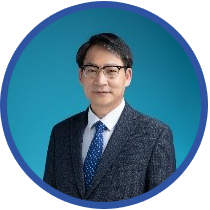
Zuankai Wang
Hong Kong Polytechnic University Hong Kong, China
Biography:
Fluid-solid interfaces play an important role in many cutting-edge fields, such as energy conversion, catalysis, heat and mass transfer, and microfluidics. In recent years, by introducing and regulating heterogeneous interfaces, we have achieved several exciting breakthroughs, including breaking the physical limit of solid-liquid contact time (force), realizing the liquid diode effect (force), boosting the efficiency of water energy harvesting (electricity), and conquering the century-old Leidenfrost physical effect (heat). Although the heterogeneity of the fluid-solid interface enables efficient energy conversion of various physical fields (force, heat, and electricity), the understanding of the underlying mechanism remains superficial, and each field is treated independently.
From the perspective of "field", the field-matching principle will be proposed based on the comprehensive analysis of several representative heterogeneous designs. This principle suggests that by tailoring the heterogeneous surfaces to reconstruct the fluid field and the physical gradient field, the two originally mismatched fields can be perfectly matched to maximize the energy output. Such a field-matching principle is also substantiated by introducing the matching coefficient, which serves as an important metric of interface design to mediate the transport and energy processes. The common feature of this principle across diverse fields allows us to establish a unified potential-energy equation, which complements the well-established theoretical framework of energy conversion and helps to guide the development of new materials and systems, even involving acoustic, optical, and magnetic fields.
Speech Title:
Field matching principle for interfacial material design and energy applications
Abstract:
Prof. Zuankai Wang is currently the Associate Vice President (Research and Innovation), Kuok Group Professor in Nature-Inspired Engineering, and Chair Professor of Nature-Inspired Engineering at The Hong Kong Polytechnic University. He received his B.S. degree from Jilin University, M.S. degree from Shanghai Institute of Microsystem and Information Technology, Chinese Academy of Sciences, and Ph. D. degree from Rensselaer Polytechnic Institute. After one-year postdoc training at Columbia University, he joined the City University of Hong Kong (CityU) in 2009 and became a Chair Professor in 2021. Professor Wang is a member of Hong Kong Academy of Engineering and Fellow of International Society of Bionic Engineering (ISBE) and Royal Society of Chemistry. His work has been recognized by the Guinness Book of World Records and his innovations have won the International Exhibition of Inventions of Geneva Gold Medal with Congratulations of Jury and Gold Medal. He has received many awards including 2024 Nukiyama Memorial Award (the highest award conferred by the Heat Transfer Society of Japan), Falling Walls Science Breakthroughs of the Year 2023 (Engineering and Technology), Croucher Senior Research Fellowship, BOCHK Science and Technology Innovation Prize, the RGC Senior Research Fellow, Green Tech Award, Xplorer Prize, 35th World Cultural Council Special Recognition Award.